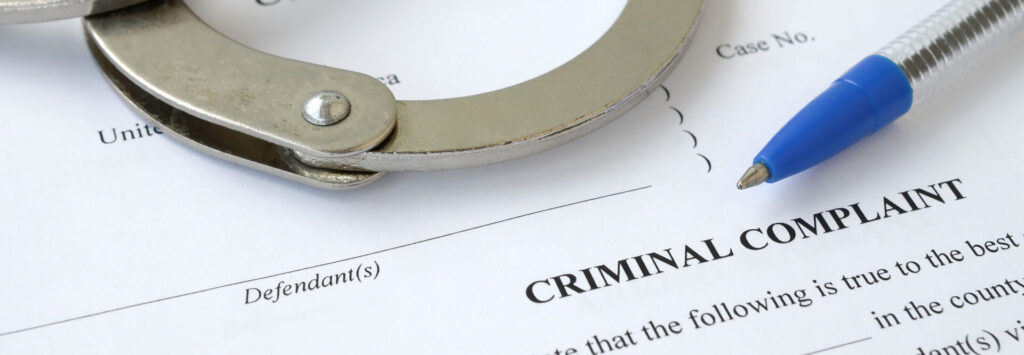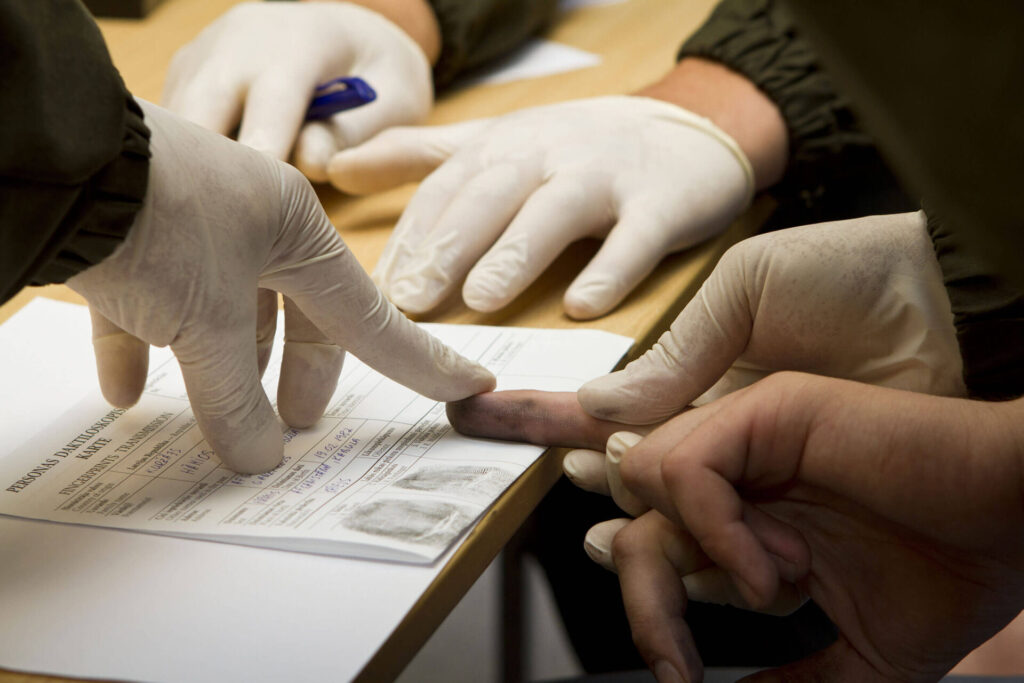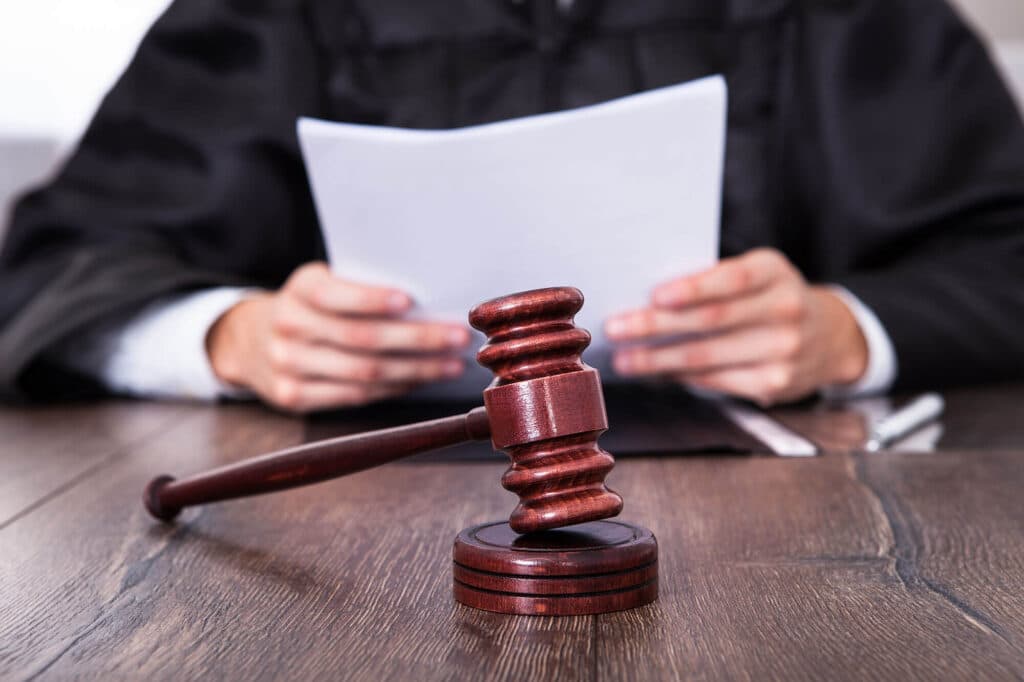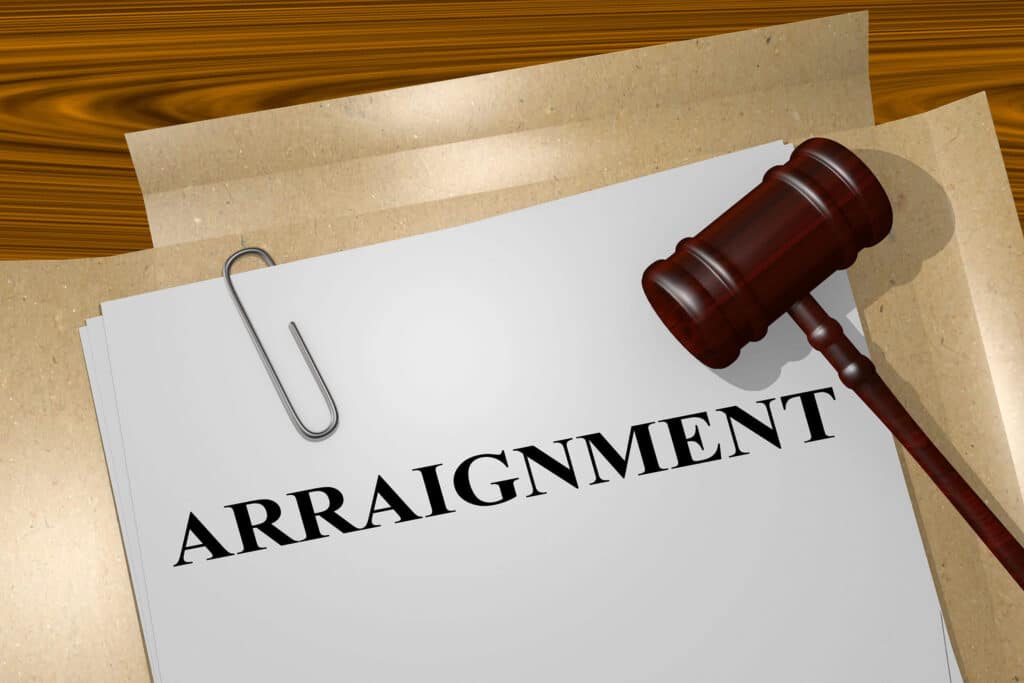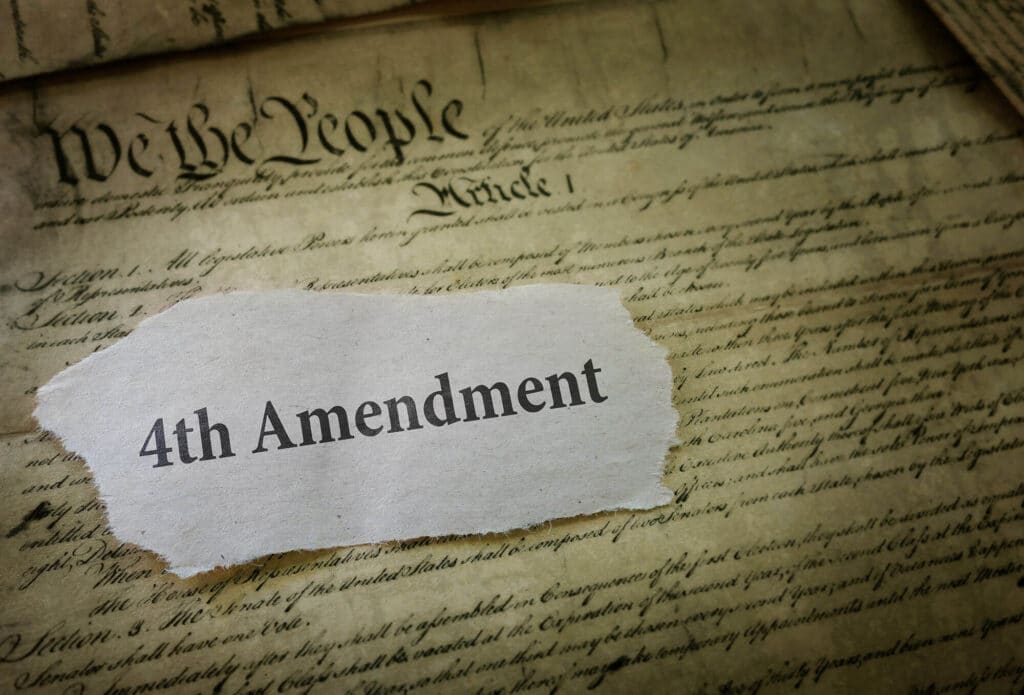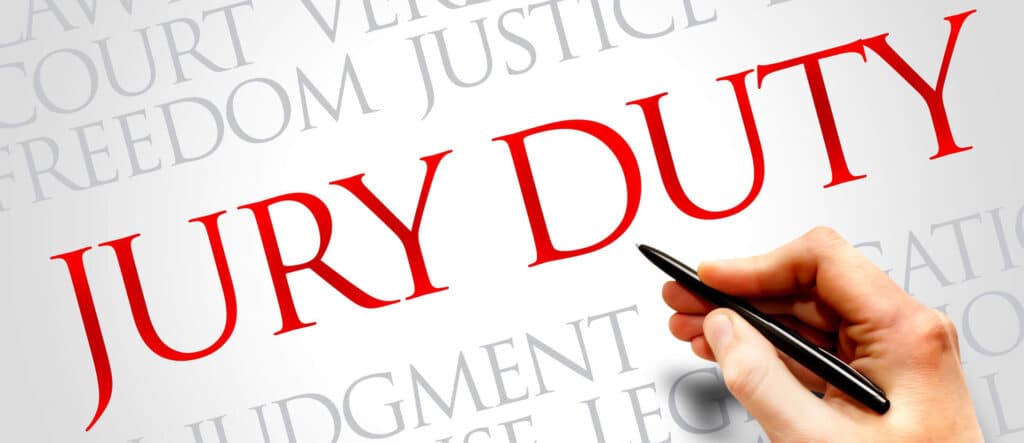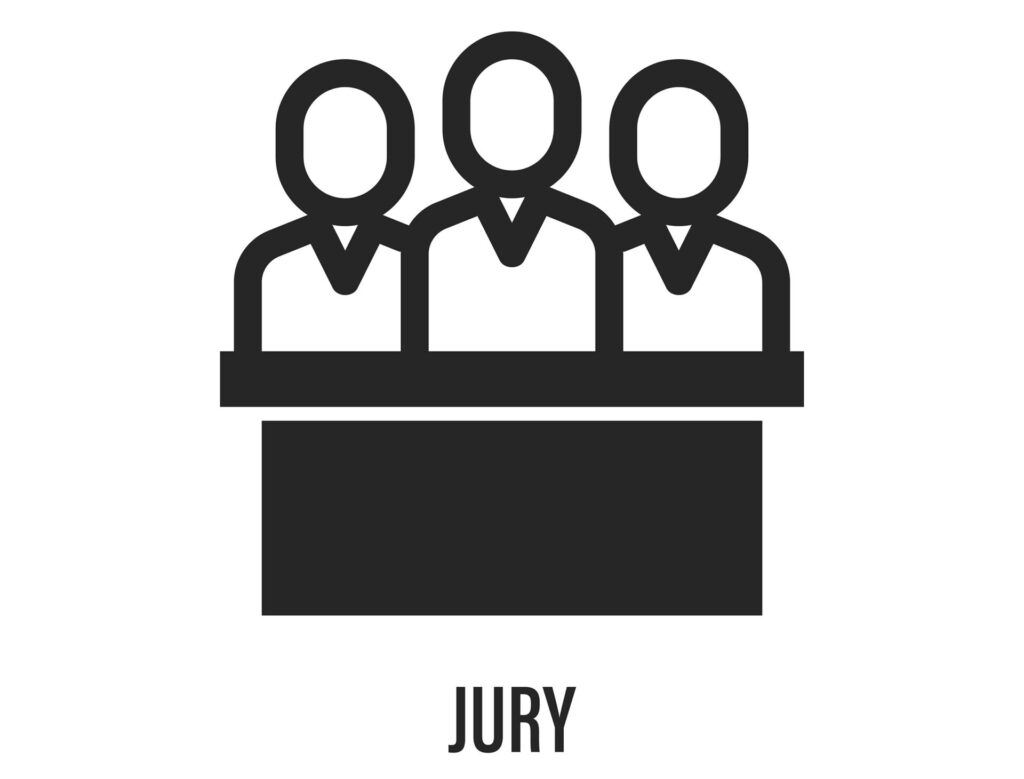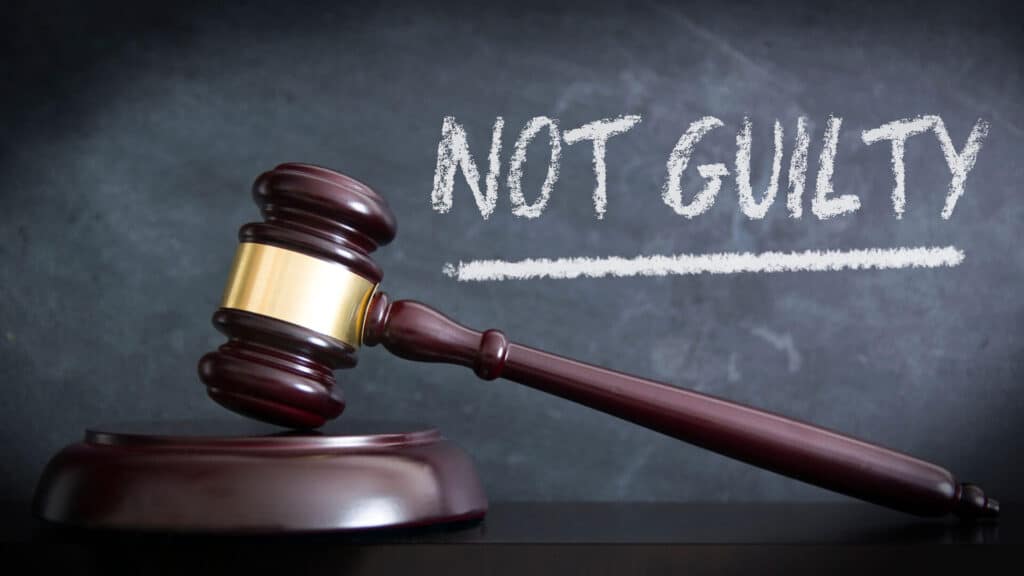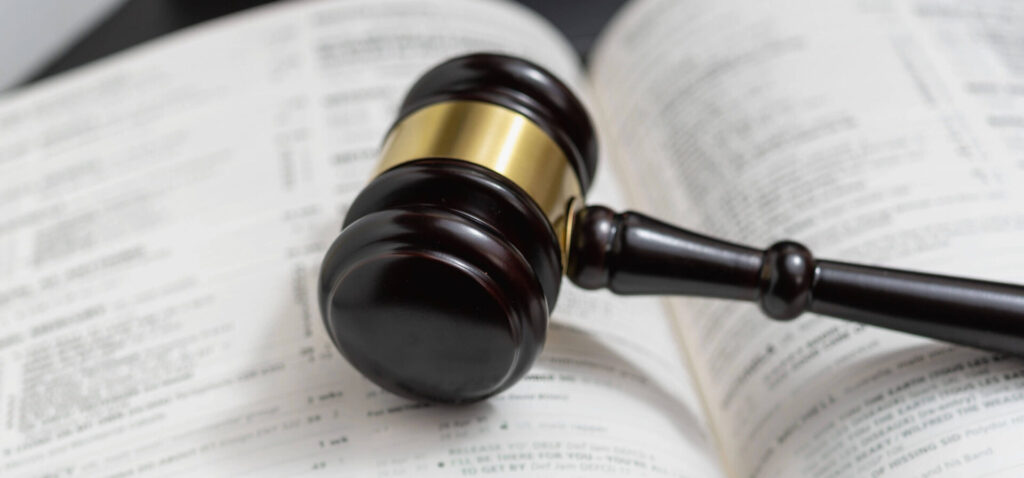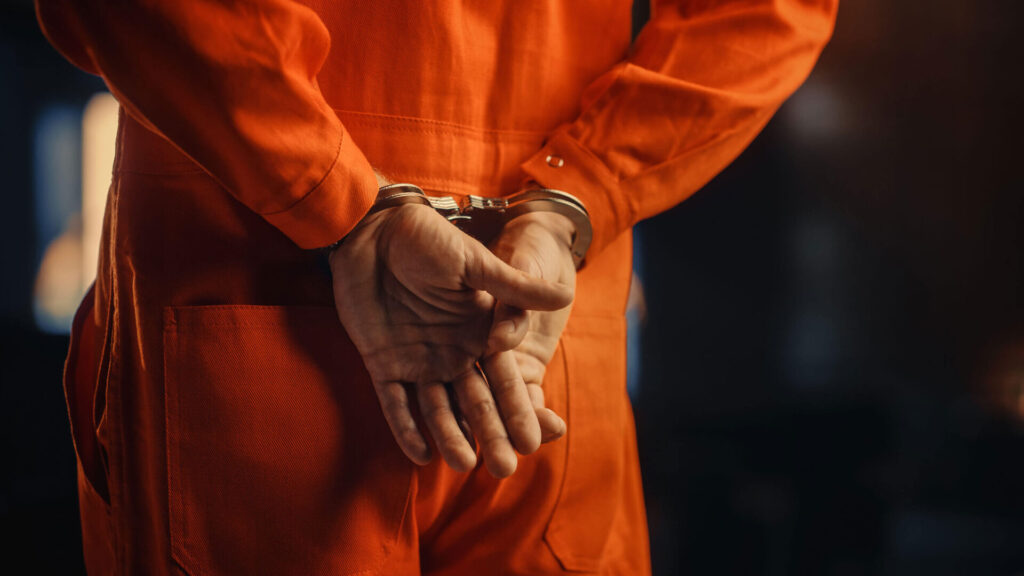
You must understand the Pennsylvania criminal court process once the police file criminal charges against you. For most people, this is one of the most stressful experiences of their lives. Above all, a criminal conviction can result in losing your employment, reputation, and freedom.
In addition, a criminal conviction can devastate your family, especially if they rely on you for financial support. Even a person facing criminal charges as a 1st-time offender can face severe life-long consequences due to a conviction for a criminal offense.
The First Step: Hire an Experienced PA Criminal Defense Attorney
Having an experienced and knowledgeable criminal defense attorney can lessen many of your concerns and ensure your rights and freedom are protected. I will fight for you if you are charged with a crime and face the overwhelming power and resources of the district attorney’s office.
Free Criminal Lawyer Consultation Near Me
Searching for criminal defense lawyers in PA. I have over a decade of experience providing skilled and aggressive representation to individuals facing criminal charges in Philadelphia County, Bucks County, Montgomery County, Chester County, Delaware County, and the surrounding Pennsylvania Counties.
Contact me at (215) 752-5282 for a free initial consultation, or fill out the confidential initial contact form for an immediate response. Appointments are available after business hours and on weekends.
What are the Stages in a Pennsylvania Criminal Case?
Arrest
An arrest is the first step in a criminal case. You are considered under arrest when the police take you into their custody. The police must believe you have committed a crime before an arrest occurs.
The police may make a warrantless arrest if a person commits a crime in their presence. In addition, the police may arrest a person without a warrant if they have probable cause to believe that a person has committed a crime.
The Police File Charges
In Pennsylvania, the criminal court process begins when the police file felony and misdemeanor criminal charges in a criminal complaint. The criminal complaint often contains a summons and a notice to appear in court.
In cases involving serious felony offenses, the police usually obtain an arrest warrant for the accused. The police take the accused into custody, or the Defendant’s lawyer will make arrangements for the accused to surrender to the police at a designated location.
The Criminal Booking Process
The booking process will occur after the police take the accused into custody following an arrest for a felony or misdemeanor offense. The booking procedure creates the official arrest record of the case.
However, the booking process usually occurs before the preliminary hearing for individuals not in jail. In those cases, the accused will receive a fingerprint order with a date and time to complete the processing.
The booking process will occur at the police department, the sheriff’s department, or at another law enforcement agency. The accused must be photographed, fingerprinted, and searched as part of the procedure.
In addition, law enforcement officials will run a background check for any existing warrants. Also, the police may require the accused to submit to DNA testing.
The First Appearance in Court
Individuals charged with a Pennsylvania state crime and taken into custody by law enforcement officials must be brought before a magisterial district judge for the first appearance in court within 72 hours of the arrest.
The first appearance is considered the initial arraignment of the accused on the charges. The district justice will formally advise the accused of the charges against them at the first appearance.
In addition, the district judge will also schedule a date for a preliminary hearing and set bail. Therefore, you should have an experienced criminal lawyer representing you at your first appearance in court.
How Does Bail Work in PA?
Individuals charged with a crime in Pennsylvania are entitled to release on bail unless the punishment for the charges could be life in prison or the death penalty. The district judge can set bail in the following forms:
- Secured bond
- Unsecured bond
- Released on your recognizance (ROR)
- Percentage cash bail
- Cash bail
Also, the district judge has the authority to set non-monetary conditions on the bail order, such as a no-contact provision.
As an experienced PA bail reduction lawyer, I understand the bail procedures in Bucks County, Montgomery County, and the nearby Pennsylvania Counties. Therefore, I can guide you and your family through the bail process after your initial appearance in court.
What is Unsecured Bail in PA?
An unsecured bail is a common form of bail in Pennsylvania. A criminal court judge will order unsecured bail for many misdemeanor and low-level felony charges.
Unlike ROR bail, the judge sets unsecured bail in a specific monetary amount, such as $10,000. However, the accused is not required to post unsecured bail as a condition of being released from custody.
In rare cases, a judge may order that the accused pay the unsecured bail if they miss a court hearing, and the court issues a bench warrant.
Montgomery County PA Criminal Defense Lawyer
The police just arrested you. You begin searching for a good criminal lawyer near me. I can help you fight the charges. Contact me at (215) 752-5282 for a comprehensive review of your case.
What is a Preliminary Hearing in PA?
At the preliminary hearing stage, the prosecutor must establish prima facie evidence of the elements of the crimes. Then, the magisterial district judge schedules the preliminary hearing at the district court in the town or municipality where the alleged offense occurred.
The prima facie standard requires the prosecutor to establish that it is more likely than not that:
- A crime has been committed; and
- You committed the crime
Unfortunately, the prosecutor has a very low burden of proof to meet at this stage of the case. Suppose the prosecutor meets the prima facie burden of proof for each offense at the preliminary hearing.
In that case, the district judge will order that the charges be held over for trial. However, the judge will dismiss the charges if the prosecutor fails to meet the evidentiary burden of proof. Contact me at (215) 752-5282 to discuss the most effective legal strategies for your preliminary hearing.
What Happens After a Preliminary Hearing
If the district attorney fails to present sufficient evidence during your hearing, the judge will dismiss some or all of your charges. If all of your charges are dismissed, your case ends unless the police choose to refile the charges.
Suppose the prosecutor establishes prima facie evidence for all of the charges; in that case, the judge will hold the charges for court.
Your case will then proceed to the next court hearing in the Court of Common Pleas for formal arraignment. If you waive your preliminary hearing, the same result occurs, and your case is scheduled for arraignment in the higher court.
Am I Considered Guilty if the Judge Holds Over My Charges at the Preliminary Hearing?
No. The prosecutor must still prove your guilt beyond a reasonable doubt for every charge, even if:
- The judge ruled that the prosecutor established prima facie evidence of the crimes at the preliminary hearing; or
- You waived your right to a preliminary hearing
Formal Arraignment
The formal arraignment hearing occurs if the prosecutor satisfied its burden of proof at the preliminary hearing or if the accused waived their right to a preliminary hearing.
In addition, the court will schedule an arraignment hearing if the accused is considered a fugitive at the scheduled preliminary hearing.
The formal arraignment occurs in the Court of Common Pleas in the county where the alleged crime occurred.
At the formal arraignment, the prosecutor will file the official charging document known as the criminal information. The criminal information lists all of the Defendant’s charges.
The judge will inform the accused of their constitutional rights at the arraignment hearing. The accused will usually enter a not-guilty plea on the arraignment date.
The formal arraignment also triggers the beginning of procedural deadlines for the defendant to file various pre-trial motions, including the Motion for Discovery and the Motion to Suppress Evidence.
What is Discovery in a Criminal Case?
Criminal discovery can include police reports, witness statements, video and audio recordings, and physical evidence. Under Pennsylvania law, the district attorney must provide the defendant with discovery before the trial date.
Pennsylvania Rule of Criminal Procedure 573 requires that the Defendant file a formal discovery request within 14 days of the formal arraignment date.
Notably, under the discovery rule, the prosecutor must turn over materials within its possession or control that demonstrate directly or indirectly that the defendant is innocent of the crime.
Lawyers refer to these materials as exculpatory evidence or “Brady material.” I will review the discovery in your criminal case to ensure that the prosecutor is not withholding proof of your innocence.
Pennsylvania Pre-Trial Diversion Programs
Pennsylvania prosecutors offer pre-trial diversion programs to first-time offenders charged with lower-level non-violent offenses. Individuals accepted into one of the first-time offender programs will have their cases diverted from the criminal justice system.
What are the Benefits of Pennsylvania Court Diversion Programs?
The main advantages of participating in a first-offender program include the following:
- Avoiding jail
- Avoiding a criminal conviction
- Expungement of your criminal record
First Offender Programs in Pennsylvania
The most common pre-trial diversion programs include Accelerated Rehabilitative Disposition (ARD), Section 17, Section 18, Section 546, and Section 586.
Your admission into ARD, Section 17, Section 18, or Section 586 programs will usually occur at the first pre-trial conference or the first trial listing of the case.
Some counties schedule admission into the ARD program on a specified court date. Therefore, I can determine your eligibility for any Pennsylvania first-time offender programs.
Bucks County Youthful Offender Program
The Bucks County District Attorney’s Office administers the Youthful Offender Program. You must be between 18 and 24 years of age to qualify for admission.
Additionally, you may be eligible for the program if the police charge you with a first-time felony offense. Applicants for the Youthful Offender Program must complete a comprehensive screening process for entry into the program.
In addition, the district attorney’s office must conclude that an applicant will benefit from the program for admission to be approved.
Upon acceptance, young adults must complete a 30-day wilderness program.
As a result, the district attorney will place the offender’s criminal case on hold. In addition, instructors of the youthful offender program teach outdoor survival skills and life skills to promote the rehabilitation of the young offender.
The district attorney will dismiss the felony charges once the offender completes the program. I have extensive experience with the Bucks County Youthful Offender Program application process and procedures. As a result, I can determine whether you qualify for the program.
Pre-Trial Conference
In many Pennsylvania Counties, the Court of Common Pleas schedules a pre-trial conference hearing after the formal arraignment. Specifically, the pre-trial conference allows the defendant’s lawyer and the prosecutor to inform the trial judge of the status of the case.
At the pre-trial conference, the defense lawyer and the prosecutor will inform the trial judge whether the case is proceeding to trial or if the charges have been through a plea agreement or other pre-trial disposition.
In addition, the defendant’s lawyer can advise the judge of any outstanding pre-trial issues that require resolution by the court. Finally, some counties permit the accused to enter a guilty plea and be sentenced by the judge on the pre-trial conference date.
Negotiated Plea Agreement
Some cases may proceed past the pre-trial conference stage and resolve without a trial through a negotiated plea agreement between the defense counsel and the prosecutor.
Also, most counties require that a defendant enter a guilty plea under the terms of a plea agreement at the next scheduled pre-trial conference or trial listing in the case.
The sentencing judge must approve the terms and conditions of the plea agreement. It is unlikely that the sentencing judge will refuse to accept a negotiated plea agreement between the parties.
I have extensive experience negotiating favorable plea agreements in the most complex criminal cases. Contact me to discuss ways a potential plea bargain can reduce your penalties and avoid jail.
What is a Motion Hearing in Criminal Court
Pre-Trial Motions
The defense counsel and the prosecutor may file various pre-trial motions before the trial date. Pre-trial motions filed by the attorney for the accused may include the following:
- A Motion to Dismiss Charges due to a Speedy Trial Violation
- A Motion to Suppress Evidence
- A Motion for Change of Venue
- A Motion to Quash the Preliminary Hearing Charges
- A Motion for Severance of Charges
- A Motion for Continuance of Trial
- A Motion to Transfer Adult Charges to Juvenile Court
- A Motion to Dismiss the Charges due to Insufficient Evidence
The prosecutor will often file a Motion to Consolidate Criminal Cases before the start of the trial. The prosecutor typically files this motion to join co-defendants in a single proceeding, which commonly occurs in cases involving large-scale drug trafficking operations.
In addition, the defense lawyer and the prosecutor may file a pre-trial Motion in Limine. A Motion in Limine is a legal filing requesting that the trial judge limit or preclude the introduction of specific evidence during the trial.
Getting a judge to grant a pre-trial motion can have a dramatic impact on your case including, in some cases, the pre-trial dismissal of your case or a ruling that severely hampers the prosecutor’s ability to win the trial.
The Criminal Trial
What is the Standard of Proof in a Criminal Case
The prosecutor must prove the accused’s guilt beyond a reasonable doubt to gain a conviction. The prosecutor’s burden of proving guilt beyond a reasonable doubt applies to every element of every crime charged in the case.
The legal standard of proof beyond a reasonable doubt is the highest standard of proof in any legal proceeding. Accordingly, if the prosecutor does not establish evidence of each element of each criminal offense beyond a reasonable doubt, the judge or jury must acquit.
What is Proof Beyond Reasonable Doubt
A reasonable doubt is a doubt that would cause an average person to hesitate in making a decision in a matter of importance in their everyday life. Reasonable doubt is established If the evidence introduced at trial creates significant uncertainty about the defendant’s guilt.
Also, if the criminal evidence doesn’t clearly and conclusively point to the defendant’s guilt, reasonable doubt exists, and the judge or jury must find the defendant not guilty.
In such a case, it is the solemn duty of a judge or a jury to find the defendant not guilty, underscoring their power and responsibility in our legal system.
What is a Bench Trial
For most criminal cases in Pennsylvania, a criminal trial can occur before a jury or a judge alone. However, if the accused waives their right to a jury trial, a judge will decide whether they are guilty or not guilty. This type of trial is referred to as a bench or waiver trial.
In a bench trial, the lawyer for the accused and the prosecutor will present evidence supporting their case theory to the trial judge. At the conclusion of the criminal trial, the judge will acquit the defendant of all charges or acquit the defendant of some charges and adjudicate guilt on others (mixed verdict).
How Do I Choose Between Bench Trial or a Jury Trial
In general, if your case involves a legal issue only, a judge only trial may be the best option. However, if your case involves a credibility determination, for example, which party (the alleged victim or the defendant) is telling the truth, a jury trial is usually a better choice.
Jury Selection
Before the trial starts, the defendant’s lawyer and the prosecutor conduct jury selection. The trial judge oversees the jury selection process.
During jury selection, the attorney for the accused and the prosecutor review juror questionnaires and question jurors.
The primary purpose of jury selection is to determine whether the potential jurors can be fair and impartial in evaluating the evidence and rendering a verdict.
The prosecutor, defense attorney, and trial judge will remove jurors who demonstrate a bias toward the prosecution or defense. The prosecutor and defense counsel will make opening arguments to the jury once the appropriate number of jurors and alternate jurors has been seated.
Opening Statements
The Prosecutor’s Opening Statement
The prosecution bears the burden of proving the defendant’s guilt beyond a reasonable doubt throughout the trial. Furthermore, the prosecutor must first present an opening argument to the jury.
The prosecution’s opening statement will generally outline the evidence it intends to present during the trial to prove that the accused is guilty of the criminal charges. The prosecutor’s initial presentation of evidence is considered its “theory of the case.”
The Defense Opening Statement
The lawyer for the accused, or the defendant, if representing themselves, will usually make an opening statement to the jury after the prosecutor’s opening statement.
In rare circumstances, the defendant may make an opening statement after the prosecution has presented its case in chief. During the opening argument, the defense lawyer will highlight the case’s critical evidence or lack of evidence.
In addition, the defense attorney will emphasize the evidence that the defense will present to the jury to establish the innocence of the accused.
Finally, the defense lawyer will explain to the jury how the accused intends to refute or discredit the prosecutor’s evidence.
The Prosecutor’s Case
In its “case in chief” or initial presentation of evidence to the jury, the prosecutor may call fact witnesses, eyewitnesses, and expert witnesses. The prosecution may also present different forms of physical evidence, including:
- Photographs
- Video recordings
- Audio recordings
- Cell phone tower evidence
- DNA evidence
- Medical records
The attorney for the accused will vigorously cross-examine the prosecution’s witnesses to challenge the credibility and reliability of their testimony. In addition, the defense counsel will question the authenticity, reliability, and relevancy of the prosecutor’s physical evidence.
The Defense Case
The defense lawyer begins presenting a defense to the charges after the prosecution has completed its initial presentation of evidence to the jury.
The attorney for the accused may call fact witnesses, expert witnesses, eyewitnesses, alibi witnesses, and character witnesses to establish the accused’s innocence.
Successful Pennsylvania Criminal Trial Defenses
- Insufficient evidence
- Self-defense
- Defense of others
- Mistaken identity
- Entrapment
- Alibi
- Lack of credibility of prosecution witnesses
The Right to Testify in Your Own Defense
The accused may choose to testify in their defense during the trial. Moreover, under Pennsylvania law, the jury cannot assume that the accused is guilty of a crime if they decide not to testify in their defense during the trial.
However, judges and juries will often find that the accused is not guilty of a crime after the defendant chooses to testify.
Closing Arguments
The closing argument gives the prosecutor and the defense attorney a final opportunity to summarize the evidence and persuade the jury to reach a verdict in their favor.
Because the prosecutor carries the burden of proof in a criminal trial, the defense must present a closing argument to the jury before the prosecutor.
The attorney for the accused will attempt to convince the jury that the prosecutor has not met its burden of proving beyond a reasonable doubt that the accused is guilty of the crimes. Also, the defense lawyer will emphasize the weaknesses in the prosecutor’s case.
After the defense’s closing argument, the prosecutor presents a closing argument to the jury. The prosecutor will claim that, based on the evidence, the defendant is guilty of the crimes.
Under Pennsylvania law, the jury must be satisfied that the government has proved the defendant’s guilt beyond a reasonable doubt to reach a guilty verdict.
Jury Instructions
Before jury deliberations, the trial judge will provide the jury with the legal standards it will apply to the evidence in the case. Among other instructions, the judge will advise the jurors of the elements of each crime and the definition of reasonable doubt.
Above all, the trial judge will instruct the jury that the prosecutor must establish the element of each crime beyond a reasonable doubt to find the defendant guilty.
Jury Deliberations
Before jury deliberations begin, the jurors will choose a jury foreperson. The length of jury deliberations can vary. In Pennsylvania, the jurors must reach a unanimous verdict in deciding whether the accused is guilty or not. Consequently, jury deliberations can last hours or weeks before the jury announces a verdict.
However, the trial judge will declare a mistrial if the jurors cannot reach a verdict after prolonged jury deliberations. This situation is referred to as a “hung jury.” In some cases, the accused may be re-tried for the charges on which the jury could not reach a verdict.
The trial judge may accept a partial verdict from the jury after consultation with the attorney for the accused and the prosecutor. For example, a criminal trial may end in a partial verdict if the jurors can reach an unanimous verdict on some but not all of the charges in the case.
The Verdict
In most criminal cases, the jury will reach a unanimous verdict for each charge. The jury foreperson will read the verdict aloud in the courtroom.
The trial judge may accept a partial verdict from the jury after consultation with the attorney for the accused and the prosecutor. For example, a criminal trial may end in a partial verdict if the jurors can reach a unanimous verdict on some but not all of the charges in the case.
In a “waiver” or bench trial, the judge will typically announce the verdict after each side presents a closing argument.
Post-Verdict Motions
The defense lawyer may file a Motion for Judgment of Acquittal if the jury returns a guilty verdict. The defense files A Motion for Judgment of Acquittal when the attorney for the accused believes that the prosecutor presented insufficient evidence of the defendant’s guilt.
Additionally, the trial judge may vacate a guilty verdict if the judge grants the Motion for Judgment of Acquittal. Also, the defense attorney may file a Motion for New Trial based on newly discovered evidence if the missing evidence may have produced a different verdict.
Finally, the defense counsel may file a post-verdict motion to correct a legal error or to remedy an injustice that may have occurred during the trial.
Sentencing
Under Pennsylvania law, a judge must sentence a person convicted of a crime within 90 days of being found guilty by a judge or jury. Similarly, a judge must impose a sentence on a person who pleads guilty or pleads no contest to a crime within 90 days of the date of the entry of the plea.
Before sentencing, the judge will consider several factors, including the protection of the community, the defendant’s background, and their potential for rehabilitation.
In some cases, the judge may order that the probation department complete a pre-sentence investigation to provide a more detailed summary of the offender’s background. Review the most frequently asked Pennsylvania sentencing questions.
How Pennsylvania Sentencing Guidelines are Used
In most cases, the judge will impose a sentence within the standard range of the Pennsylvania state sentencing guidelines. The sentencing guidelines provide the judge with a suggested sentence range based on the offense’s severity and the offender’s prior criminal history.
During the sentencing hearing, the defense attorney will often present mitigating evidence to the sentencing judge, including:
- Character witnesses
- Character letters
- Proof of substance abuse treatment
- Evidence of mental health counseling
- Testimony from family members
- Payment of restitution
However, the sentencing judge may impose a sentence in the lower range of the sentencing guidelines if the offender has demonstrated remorse and taken significant steps toward rehabilitating their life.
Presenting the proper mitigation evidence at sentencing will often make the difference between a person going home to their family or being transported to jail.
Motion for Reconsideration of Sentence
The defense lawyer must file a Motion for Reconsideration of the Sentence within 10 days of the imposition of the sentence. The defense counsel will often file a Motion for Reconsideration of the Sentence when the defense lawyer discovers new mitigating evidence after the offender’s sentencing.
The newly discovered mitigating evidence must be of such a nature that it would have impacted the judge’s sentencing had the judge been aware of it. In addition, the defendant’s lawyer may file a Motion for Reconsideration of the Sentence if the sentencing judge imposes an illegal sentence.
Post-Conviction Appeal
The appellant may raise several issues on appeal after being convicted of a crime. The appellant’s lawyer must raise specific appellate matters before the trial judge to preserve the issues for the appeal.
For example, the appellant must present a claim that the verdict was against the weight of the evidence at the trial court. In addition, the appellant may file an appeal based on the trial judge’s denial of a Motion to Suppress Evidence or a Motion to Suppress a Statement. Other appellate issues include:
- Illegal sentencing
- Prosecutor misconduct
- Insufficient evidence for the conviction
- Prejudicial evidence introduced during the trial
I have extensive experience with the Pennsylvania post-conviction appellate process and procedures. Therefore, I can review the circumstances of your conviction to determine the relevant legal issues to raise on appeal.
Should I Represent Myself?
No. Individuals charged with a crime have a constitutional right to represent themselves in a criminal case. However, it is almost always the wrong decision to defend yourself in a criminal case.
Most non-lawyers will be severely disadvantaged in the criminal court system due to their unfamiliarity with the rules of evidence and complex court procedures. Unrepresented individuals often need help to succeed in cases involving even minor offenses.
Therefore, speaking to a knowledgeable criminal defense attorney is essential before representing yourself in a criminal case.
Why it is Important to Build Your Defense at the Earliest Stage
Hiring an experienced criminal defense lawyer is crucial at the earliest possible stage in the criminal case. That may be while you are being investigated or after the police file charges.
In some cases, I can conduct a pre-arrest investigation to develop evidence to convince the police or prosecutor not to file criminal charges.
Why my Criminal Defense Experience Matters
I have extensive experience aggressively defending individuals charged with various criminal offenses. Most importantly, my experience includes representation during the grand jury investigation, pre-arrest investigation, preliminary hearing, pre-trial motions, trial, sentencing, and appeal.
My law practice focuses exclusively on representing individuals charged with criminal offenses. I will guide you through what is often an overwhelming process and develop the most effective defense strategy to resolve your case.
In addition, I will keep you fully informed of the developments in your case and answer any questions you may have throughout the process.
Contact a Pennsylvania Criminal Defense Lawyer
I provide an aggressive defense to individuals facing criminal charges in Montgomery County, Bucks County, Chester County, Delaware County, and the surrounding Pennsylvania Counties.
Phone lines are open 24 hours daily at (215) 752-5282. Contact me for a free initial consultation to discuss the Pennsylvania criminal court process and all available legal defenses. In addition, you can fill out the confidential contact form for an immediate response.

